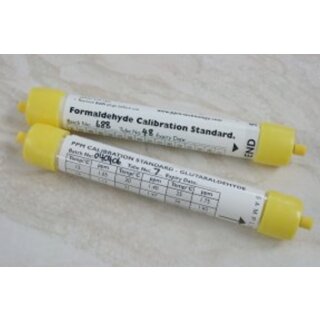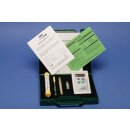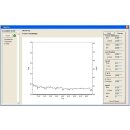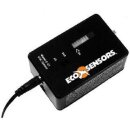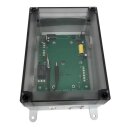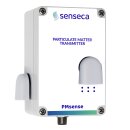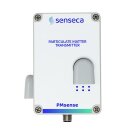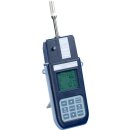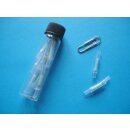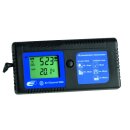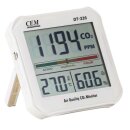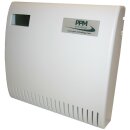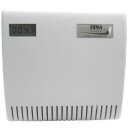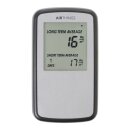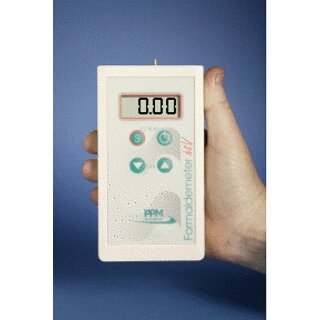
-
: 8 - 10 Workdays (DE - int. shipments may differ)
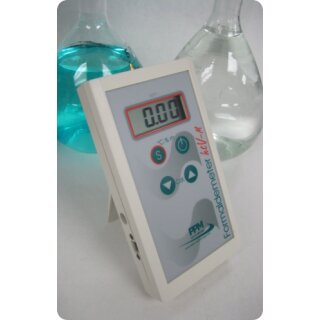
-
: 8 - 10 Workdays (DE - int. shipments may differ)
-
: 1 - 3 Workdays (DE - int. shipments may differ)
-
: 8 - 10 Workdays (DE - int. shipments may differ)
-
: 8 - 10 Workdays (DE - int. shipments may differ)
-
: 11 - 13 Workdays (DE - int. shipments may differ)
-
: 11 - 13 Workdays (DE - int. shipments may differ)
-
: ca. 3 weeks (DE - int. shipments may differ)
-
: 8 - 10 Workdays (DE - int. shipments may differ)
-
: 8 - 10 Workdays (DE - int. shipments may differ)
-
: ca. 3 weeks (DE - int. shipments may differ)
-
: 8 - 10 Workdays (DE - int. shipments may differ)
-
: 1 - 3 Workdays (DE - int. shipments may differ)
Air Pollution Meters – Ensuring Safety Through Clean Air
The quality of indoor air has a direct impact on our health and well-being. Pollutants such as fine dust, volatile organic compounds (VOCs), carbon monoxide (CO), or radon can be present indoors unnoticed and lead to serious health problems. Air pollution meters allow you to detect these invisible dangers and take timely measures to ensure clean and safe indoor air. In our category, you will find a wide range of high-quality measuring devices for monitoring air quality in residential spaces, offices, or public facilities.
1. Why Are Air Pollution Meters So Important?
Airborne pollutants can enter the breathing air unnoticed and trigger various health complaints – from headaches and fatigue to serious respiratory diseases. In poorly ventilated rooms or buildings with high pollutant loads, regular monitoring of air quality is essential. With an air pollution meter, you can monitor the concentration of hazardous substances in the air and take targeted measures to improve air quality.
2. Which Air Pollutants Should Be Monitored?
There are various pollutants that can contaminate indoor air. Here are some of the most important substances that can be monitored with specialized devices:
- Fine dust (PM2.5, PM10): Tiny particles that enter the air from road traffic, industrial emissions, or household dust, significantly affecting respiratory health.
- Volatile Organic Compounds (VOC): Chemical substances emitted from building materials, furniture, or cleaning products that can be harmful to health.
- Carbon Monoxide (CO): An odorless and toxic gas that is mainly produced by incomplete combustion of fossil fuels and can be life-threatening in enclosed spaces.
- Radon: A radioactive noble gas that can seep into buildings from the ground and increase the risk of lung cancer with prolonged exposure.
- Mold Spores: Mold growth can lead to an increased concentration of mold spores in the air, which can cause allergies and respiratory diseases.
3. What to Consider When Buying an Air Pollution Meter?
When purchasing an air pollution meter, consider the following factors:
- Measurement Parameters: Ensure that the device measures pollutants relevant to your environment, such as fine dust, VOCs, or carbon monoxide.
- Accuracy: A high-quality measuring device should provide precise readings to deliver reliable information about air quality.
- Real-Time Measurement: Devices with real-time measurement capabilities allow you to detect changes in air quality immediately and take action accordingly.
- User-Friendliness: An intuitive interface and clear displays make it easy to operate and read measurements, even for non-experts.
- Data Logging: Some devices offer the ability to store data over long periods, which is useful for detailed air quality analysis.
4. Where Are Air Pollution Meters Used?
Air pollution meters have versatile applications and are used in various fields:
- Residential Spaces: To monitor air quality in homes and apartments, especially in poorly ventilated areas such as basements or bathrooms.
- Workplaces: Offices or production facilities need to control exposure to VOCs, fine dust, and other pollutants to maintain a healthy work environment.
- Schools and Public Buildings: In spaces with many people, maintaining good air quality is crucial to prevent the spread of pollutants.
- Hospitals and Care Facilities: Continuous air quality monitoring is essential to ensure the well-being of patients and residents.
Conclusion: Safety Through Clean Indoor Air
Air pollution meters are essential tools for detecting invisible hazards in the air and improving indoor air quality. With a reliable measuring device, you can identify potential health risks early and take action to create a clean and safe environment. In our online store, you will find a wide selection of air pollution meters to help you continuously monitor and improve air quality.

